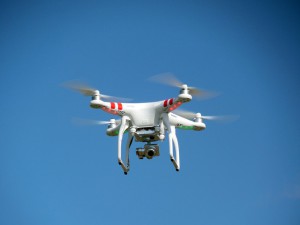Drones have been causing issues with both the law and U.S. citizens since they exploded in popularity a few years ago. There have been countless stories of people clashing and violence occurring when drones are involved in flying over private property. With issues of privacy and a fear of governmental and private spying and intrusion on private life, it makes sense that drones are viewed with suspicion — not that that justifies harming the operator or damaging someone else’s private property. Now, it seems as though a new law that was just enacted in my home state of Florida is going to make flying a drone even more financially risky.
Florida Governor Rick Scott had signed the Freedom from Unwarranted Surveillance Act (FUSA) and it took effect on July 1st. This act is meant to prohibit a person, governmental agency, or political party or subdivision to use drones from taking pictures and capturing video of a person’s private property or the people on said private property (regardless of whether they are the owner, an occupant, or simply a visitor) with the intent to conduct surveillance and spy on their private and personal lives. The law makes it so that a drone operator must get written consent from the people on said private property if they want to use the drone in this manner, especially if the people have a reasonable expectation of privacy on their own property. The law applies to both private citizens as well as law enforcement and goes along with a previous law that require police to get a warrant to use drones for evidence collection. It also doesn’t apply to certain businesses or professions that are licensed by the state for certain reasons.
With the option to sue using this law as support, it’s going to become much more difficult for people and agencies to get insured against damage and lawsuits. It also means that many companies that rely on drones for their businesses are going to be bringing lawsuits against the state of Florida for infringing on their ability to conduct business in a free and fair way. Drones are used by insurance companies to scope out damage in hard to reach places and hazardous environments so that they can gather information more quickly and with less chance of putting someone in a dangerous position. While it remains to be seen how this will play out (after all, the law is relatively new), I can already foresee a host a lawsuits from both private citizens and corporations aimed at this law.
If you’d like to read more, the link is here.